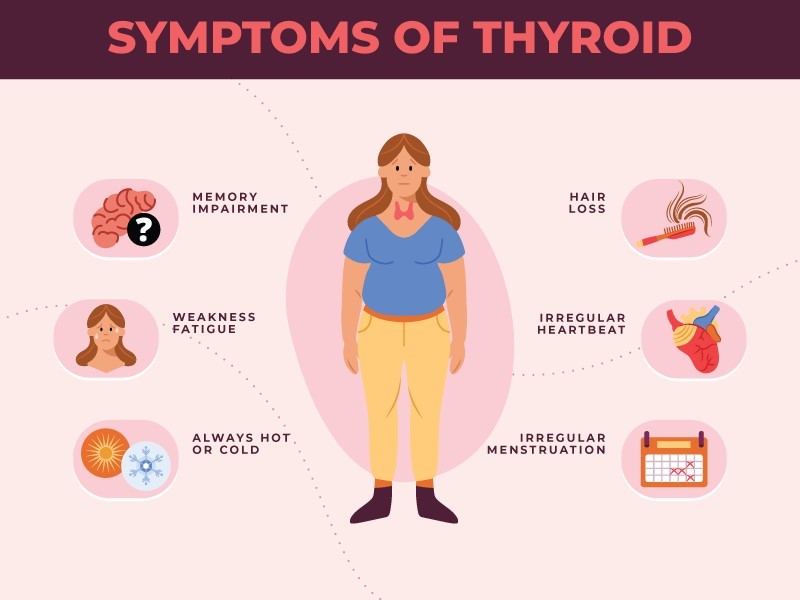
We’ll confirm your booking shortly!
Please provide your number to receive updates.
Enter the 6-digit verification code we just sent you to through SMS. Change Mobile

The thyroid is a little gland in the neck that secretes hormones that control metabolism, growth, and development. There are millions of people suffering from thyroid dysfunction globally. We will talk about thyroid tests in this post, covering the many blood tests that measure thyroid levels, what they mean, and how they can be used to identify thyroid diseases.
What is the Thyroid hormone?
The main hormone in charge of controlling how rapidly your metabolism functions is the thyroid hormone. The development of a baby's brain depends on thyroid hormone. The two main hormones secreted by the thyroid gland, thyroxine (T4) and triiodothyronine (T3), are combined to form thyroid hormones.
Because T4 is generally inactive, meaning it has little effect on your cells, while T3 is active, they are frequently referred to as "thyroid hormone" jointly. Your body's organs convert T4, which has been released by your thyroid, into T3 so that it can affect your cells and metabolism.
Thyroid blood tests are the primary way to diagnose thyroid disorders. There are different types of thyroid blood tests, including:
Interpreting thyroid test results can be complex and requires the expertise of a healthcare provider. The common thyroid blood test T3, T4, TSH measures the level of thyroid hormones in the blood. Normal reference ranges can vary between laboratories, but generally, a TSH level between 0.4-4.0 mIU/L is considered normal, while T4 levels should be between 4.5-11.2 mcg/dL, and T3 levels between 80-200 ng/dL
Hypothyroidism test results indicate an underlying thyroid disorder. Further testing may be necessary to determine the cause. It's essential to consult with a healthcare provider to interpret thyroid test results and recommend appropriate treatment based on individual needs.
Thyroid tests are essential for diagnosing and managing thyroid disorders. TSH, T4, and T3 tests can help identify the level of thyroid hormones in the blood, while thyroid antibody tests can identify autoimmune thyroid disorders.
Understanding thyroid test results can be challenging, but consulting with a healthcare provider to interpret the results and recommend appropriate treatment is important. If you're experiencing symptoms of thyroid dysfunction, such as fatigue, weight gain, or hair loss, consult a healthcare provider who can order appropriate thyroid tests and recommend a personalized treatment plan.
Discover precision diagnostics with Pathkind Labs, a trusted name in diagnostic services in India. Our NABL accredited labs, equipped with advanced technology, are staffed by a certified team of over 200+ senior pathologists and 2000+ technicians. From tailored health check-ups to specialized tests in Oncology, Neurology, Gynaecology, Nephrology, and more, we've got your health covered. Skip the hassle with online booking for tests or check-ups, available for both lab visits and at-home blood collection. For a seamless experience and early detection, choose Pathkind Labs in Gurugram. Book your appointment today and experience diagnostics made easy.
© 2025 Pathkind Diagnostics Pvt. Ltd. All Rights Reserved | Unsubscribe
